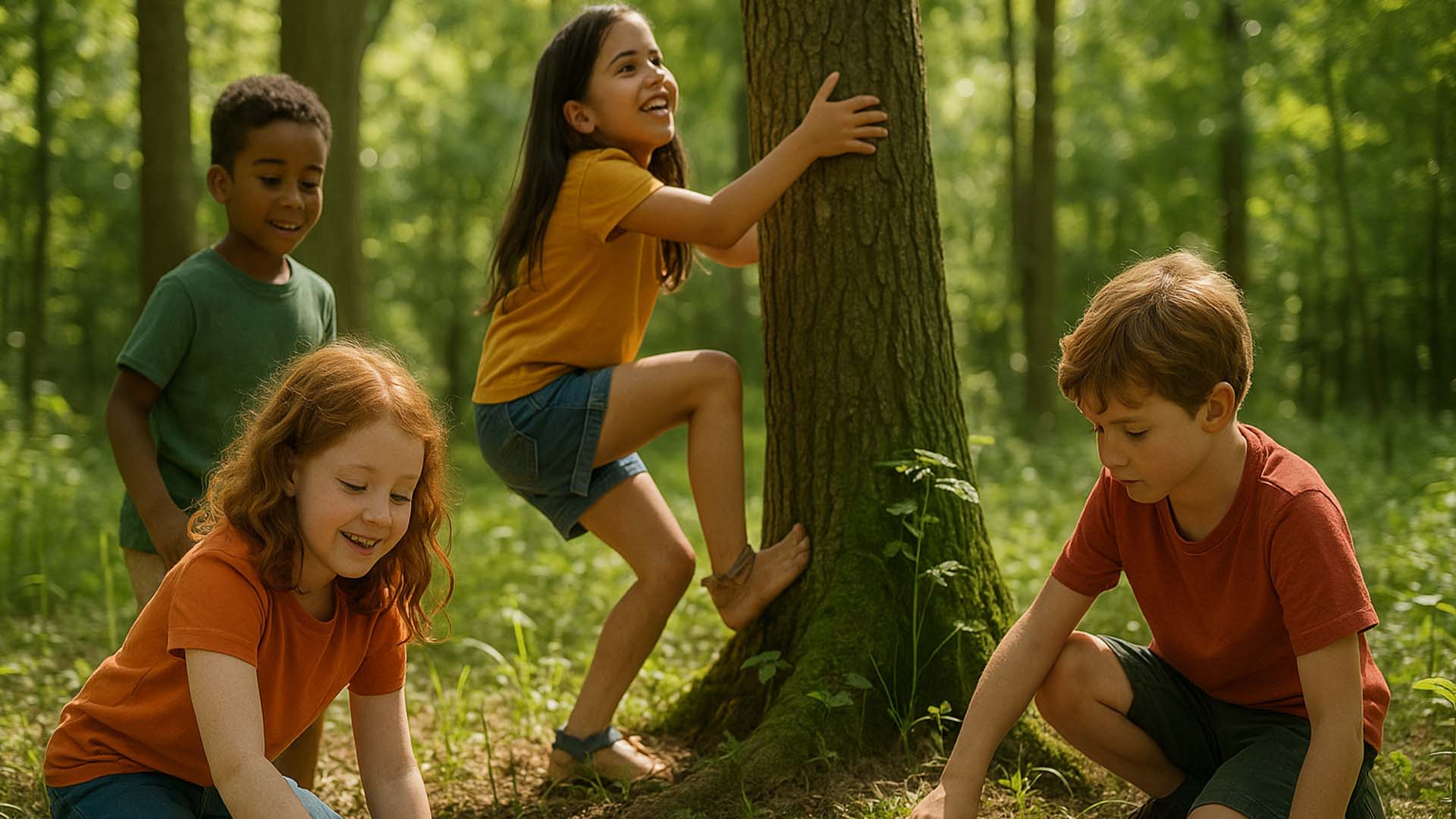In a world dominated by screens and structured activities, the simple joy of playing outside can feel like a lost art. Many parents today watch their children gravitate towards tablets and video games, expressing a clear preference for the great indoors.
This shift has led to a growing concern known as “Nature Deficit Disorder,” a term coined by author Richard Louv to describe the negative consequences of a childhood spent disconnected from the natural world. This article explores the profound benefits of outdoor play and offers practical ways to help your children reconnect with nature.
The Science Behind Sunshine and Soil
A growing body of research confirms what many generations have known intuitively: spending time outdoors is essential for a child’s development. Studies show that children who play outside are smarter, happier, more attentive, and less anxious than those who spend most of their time indoors [1]. The unstructured nature of outdoor play provides a unique environment for growth that is difficult to replicate inside.
Building More Than Just Forts
The benefits of outdoor play extend far beyond physical health. When children are free to explore a natural environment, they develop crucial life skills.
- It builds confidence. In nature, there are no set rules. A stick can become a magic wand, a pile of leaves a secret fort. This freedom allows children to control their own actions and make their own choices, fostering a sense of independence and self-assurance.
- It promotes creativity and imagination. The outdoors is a sensory-rich environment that stimulates a child’s imagination. Unlike a video game with pre-programmed outcomes, nature offers limitless possibilities for inventive play and discovery.
- It teaches responsibility. Caring for a plant or observing the life cycle of a butterfly teaches children about the delicate balance of ecosystems and the importance of respecting living things.
“As the young spend less and less of their lives in natural surroundings, their senses narrow, and this reduces the richness of human experience.” – Richard Louv, author of Last Child in the Woods [1]
A Natural Remedy for Modern-Day Stress
The modern world can be a stressful place, even for children. The constant stimulation of urban environments and digital devices requires what scientists call directed attention, which can be mentally exhausting. In contrast, natural environments promote a state of soft fascination, a type of effortless attention that has been shown to reduce stress and mental fatigue. This is why a walk in the park or a hike in the woods can feel so restorative.
Q&A
Q: My child isn’t interested in playing outside. What can I do?
A: Start small. You don’t have to plan an elaborate wilderness expedition. A simple walk around the block, a visit to a local park, or even just spending time in your own backyard can make a difference. Try to find activities that align with your child’s interests. If they love to build, challenge them to create a fairy house out of natural materials. If they’re artistic, bring sketchpads and colored pencils on your next nature walk.
Q: How can I make outdoor play a regular part of our routine?
A: Schedule it in, just as you would any other important activity. Set aside time each day or week for dedicated outdoor play. It could be a daily after-school walk, a weekly family hike, or a weekend trip to a nearby nature preserve. The key is to make it a consistent and enjoyable part of your family’s life.
Q: Are there specific activities that are best for child development?
A: The most beneficial outdoor play is often the most unstructured. Simply giving your child the time and space to explore, imagine, and create on their own is incredibly valuable. Activities like climbing trees, building forts, digging in the dirt, and simply observing the natural world all contribute to a child’s physical, cognitive, and emotional development.
Sources
[1] Child Mind Institute. (2024, November 13). Why Kids Need to Spend Time in Nature. https://childmind.org/article/why-kids-need-to-spend-time-in-nature/








0 Comments